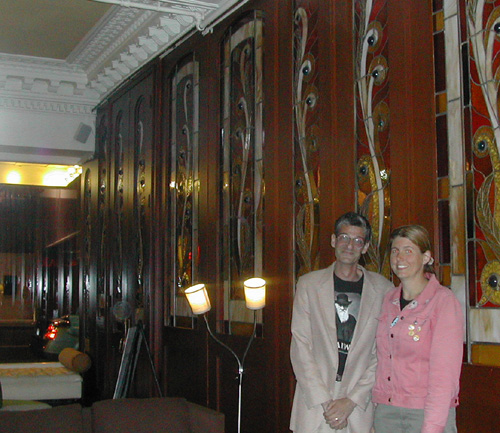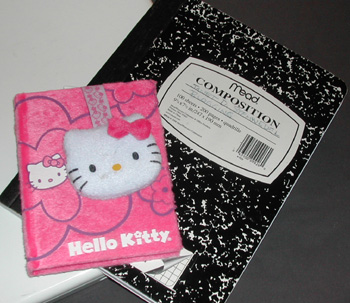In the discussion on the earlier post about what policies should govern lab notebooks kept by graduate researchers, the commentariat identified a number of important considerations. At least a few of the commenters were sure that a one-size-fits-all policy wouldn’t work, and collectively the comments identified some central questions that go to the heart of how, precisely, lab notebooks are supposed to function:
Category Archives: Communication
Discretion, deception, and communication between scientists and non-scientists.
A recycled post from the ancestor of this blog, before anyone read it.
In my “Ethics in Science” class, we regularly use case studies as a way to practice reasoning about ethics. There’s a case I’ve used a few times involving research with animals where the protagonist airs some of her concerns (specifically, about her PI telling her to change the approved protocol several weeks into the study) to a (non-scientist) roommate. In our class discussions of this case, the question arose as to whether the roommate should even be counted as an interested party in the situation. After all, she wasn’t involved in the research. And, since she wasn’t a scientist, she was in no position to assess whether the protocol was reasonable, whether the scientific question was an important one to answer, etc. So, you know … butt out.
Lab notebooks and graduate research: what should the policy be?
An earlier post tried to characterize the kind of harm it might do to an academic research lab if a recent graduate were to take her lab notebooks with her rather than leaving them with the lab group. This post generated a lot of discussion, largely because a number of commenters questioned the assumption that the lab group (and particularly the principal investigator) has a claim to the notebooks that outweighs the claim of the graduate researcher who actually did the research documented in her lab notebooks.
Scientists and journalists.
I’m late to this round of the discussion about scientists and journalists (for which, as usually, Bora compiles a comprehensive list of links). The question that seems to have kicked off this round is why scientists are sometimes reluctant to agree to interviews, especially given how often they express their concern that the larger public seems uninterested in and uninformed about matters scientific.
As I have some interest in this topic, I’m going to add a few thoughts to the pile:
Why wouldn’t this be a good way to do peer review?
When my “Ethics in Science” class was discussing scientific communication (especially via peer reviewed journals), we talked about what peer review tries to accomplish — subjecting a report of a scientific finding to the critical scrutiny of other trained scientists, who evaluate the quality of the scientific arguments presented in the manuscript, and how well they fit with the existing knowledge or arguments in the relevant scientific field.
We also talked about the challenges of getting peer review to function ideally and the limits of what peer review can accomplish (something I also discussed here). In many instances, the people peer reviewing your manuscripts may well be your scientific rivals. Even if peer review is supposed to be anonymous, in a small enough sub-field people start recognizing each other’s experimental approaches and writing styles, making it harder to keep the evaluation of the content of a manuscript objective. And, peer reviewing of manuscripts is something working scientists do on top of their own scientific research, grant writing, teaching, supervision of students, and everything else — and they do it without pay or any real career reward. (This is not to say it’s only worth doing the stuff you get some tangible reward for doing, but it can end up pretty low in the queue.)
Why, one of my students asked, don’t the journals hire people to do peer reviewing? Why not make it an actual paid job?
My dinner with Bora.

I got a chance to have dinner with Bora last night in San Francisco on the eve of his job interview with PLoS ONE. This gave us the opportunity for a free-wheeling discussion about the potential of new technologies to change the ways scientists communicate with each other (and with non-scientists), the ways that conversations (and drawing people into them) aren’t coupled too tightly to the fancy technical thingies (the “aps”) that carry them through cyberspace, the ways that interfaces and functionality can exert subtle influences on the ways people interact with ideas and with each other, and all sorts of other issues pedagogical and blogospheric. There were also a number of gratuitous references to “framing” and “memes”.
PLoS arranged for Bora to stay at The Mosser (in whose lobby we are pictured above). It’s one of those great small hotels that San Francisco has a bunch of, and the lobby feels like something out of a classic movie.
As I hit the “publish” button, Bora will be starting his action-packed day with the PLoS folks — wish him luck!
Separating the public and private spheres.

Depending on your blog reading habits, you may already have heard the news that feels almost like cosmic justice that a law firm has rescinded an offer of employment from a third year law student whose online activities the firm found troubling. The linked posts will give you some flavor for those activities (as will this post), so I’m not going to go into the gory details here. However, I wanted to say a few words about this comment Amanda Marcotte made on Sheezlebub’s post on the matter:
While it couldn’t have happened to a nicer guy, I simply have to voice my unease with the politics of personal destruction, even when done for the right cause. Getting people fired is the right’s strategy. (I know.) Scalp-collecting bothers me to no end. Granted, we didn’t do anything to get him fired, but needless to say, I have to protest any and all attempts in the future to separate a person from his job because of his opinions in a non-work capacity.
(Bold emphasis added.)
You may recall that Amanda left her job with the Edwards campaign because Bill Donohue’s Catholic League decided to make Amanda’s personal views into a big issue for Edwards. (Arguably, Donohue did this by misrepresenting her views, which strikes me as an ethical violation of the bearing-false-witness variety, but I’m just giving you the background for Amanda’s comment.)
Anyway, the issue I want to examine is the separation between work and non-work conduct and opinions, especially as they are manifested on the internet.
To correct or to retract? The ethics of setting the record straight.
An important part of the practice of science is not just the creation of knowledge but also the transmission of that knowledge. Knowledge that’s stuck in your head or lab notebooks doesn’t do anyone else any good. So, scientists are supposed to spread the knowledge through means such as peer reviewed scientific journals. And, scientists are supposed to do their level best to make sure the findings they report are honest and accurate.
Sometimes, scientists screw up. Ideally, scientists who have screwed up in a scientific communication need to set the record straight. Just what is involved in setting the record straight, however, sometimes presents interesting problems, as the following case illustrates nicely.
And the point of publishing scientific findings was what again?
Pencils ready? Here’s a quick quiz; circle all that apply*:
1. You’re a scientist and you’ve just published some research in a peer reviewed journal. You want:
a. Scientists in your field to read and discuss your work.
b. Interested non-scientists to get the important bits of what you found and why it matters, whether by powering through the article themselves or by getting a clear explanation of the article from a scientist.
c. No discussion of your article at all — once it’s on the page in the journal, there’s nothing else to say about it.
d. All discussions of your findings to be based on press releases rather than the details in your journal article.
Do I blog like a girl?
This tool uses an algorithm to guess whether the chunk of text you enter into the text box was written by a male or a female. What do you suppose it thought about my writing?
